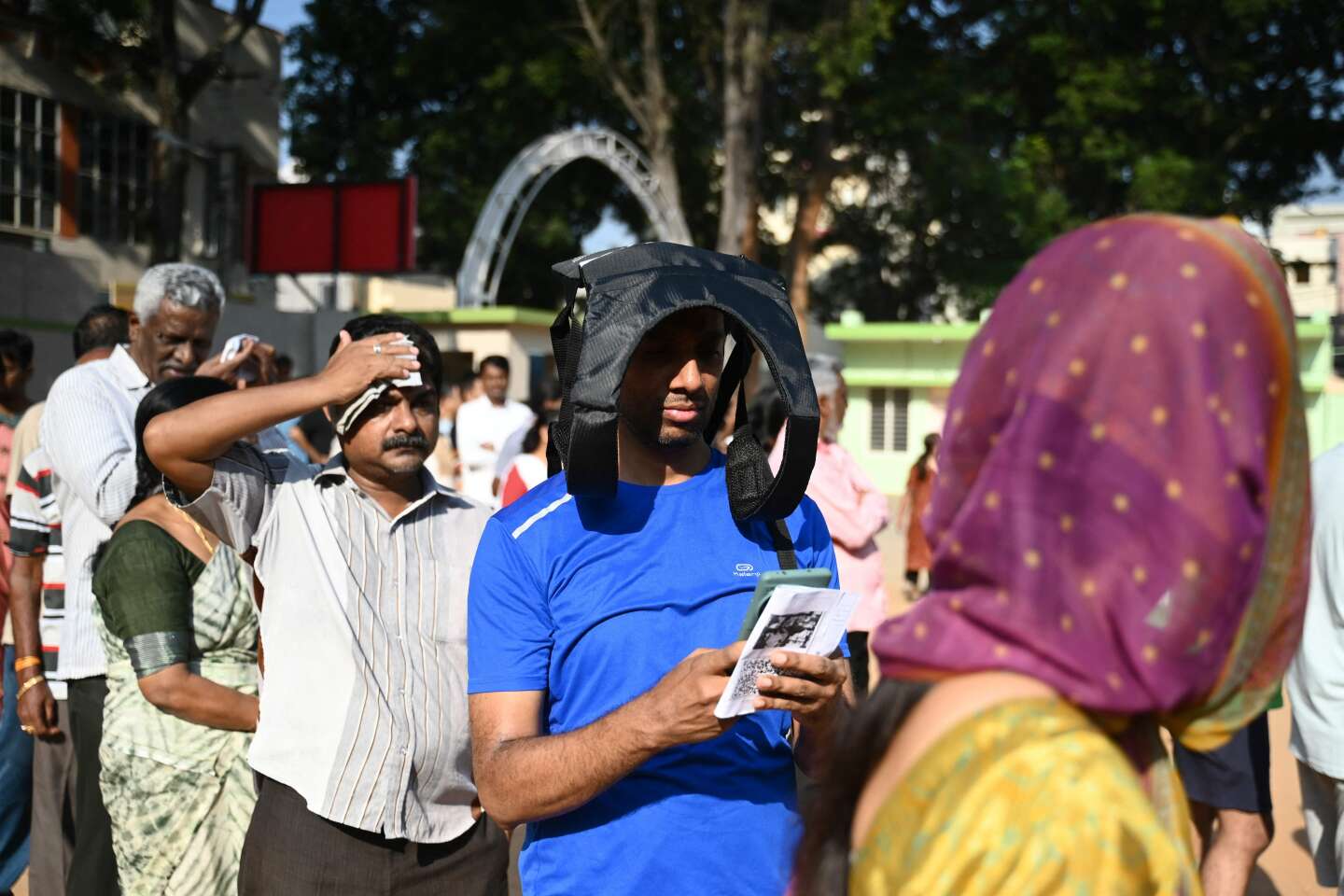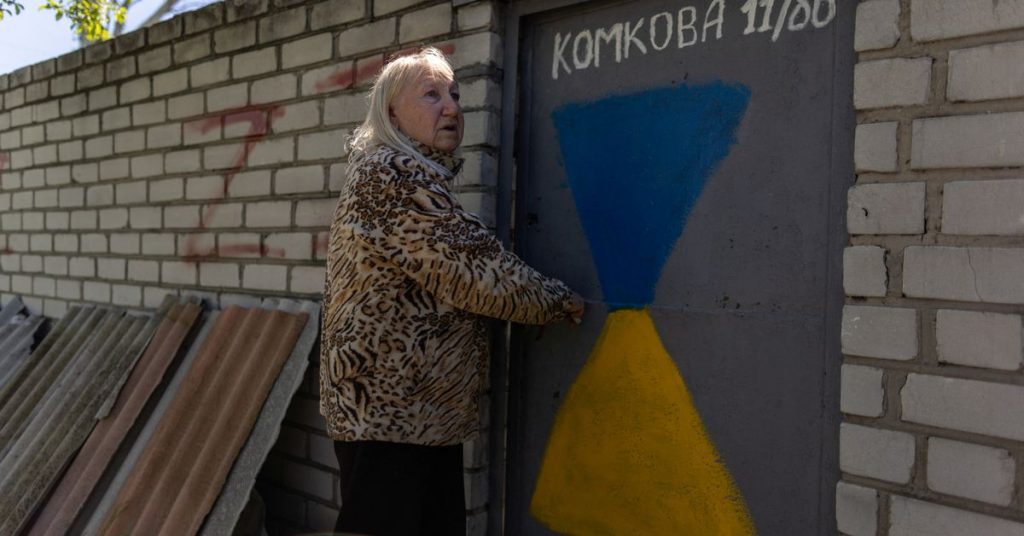KHERSON, Ukraine, May 18 (Reuters) – Valentina Harras says she is not a traitor.
However, the walls of her garden in the Ukrainian city of Kherson are covered in graffiti referring to her as a Russian collaborator. “Rashid” – a Ukrainian mix of Russian fascism – is written in red. The accusatory “Z” — symbols of support for Moscow’s war machine — is painted liberally.
Fear and suspicion haunt the streets of Kherson, a southern port that Russian forces occupied for more than eight months before Ukrainian forces drove it out in November. The city is now the epicenter of relentless Russian bombardment.
After six months of occupation, the neighbors don’t trust the neighbors. Traitors could be anywhere.
Harras, a district administrator, said four Ukrainian military personnel knocked on her door on November 26, days after the Russian forces left, and accused her of collaboration, a crime punishable by a maximum prison term of 10-15 years. She added that they searched her home and confiscated her phone and computer, citing complaints from neighbors that she had encouraged residents to apply to occupiers and take Russian passports.
Afterwards, the 74-year-old was questioned by the police even though she was not arrested or charged with any crime. She denies all the accusations against her and said she does not understand why she was described as a collaborator, adding that she was happy when the Russians were expelled.
“Honestly, I don’t know,” she said, sobbing outside her home. “They didn’t find anything.”
Neighbor Irina Neshevilova gave a different account.
“She openly supported the Russians and told everyone that Russia is wonderful, that she felt terrible under Ukrainian rule. It was not a quiet admission,” Neshvilova said.
“People were expecting her to be transferred immediately. We had written charges against her for months. But it wasn’t, and people were shocked.”
Police at the local station where they said they were questioned declined to comment on the case. The Ukrainian military did not immediately respond to a request for comment.
Reuters could not independently verify Haras’ or Nechivilova’s version of events.
Accusations of collaboration have become a feature of daily life across Ukraine as Russian forces have been driven from swathes of territory they once occupied.
Russia has lost more than 40% of the territory it captured after launching a full-scale invasion in February last year, leaving it in control of nearly a fifth of the country including Crimea, according to Oleksandr Musienko, a Kiev-based military analyst.
More than 5,300 cases of cooperation have been registered across the country, according to the attorney general’s website. It was not clear what stage the cases were in, and the attorney general’s office did not immediately respond to a request for comment.
Shell daily from Russia
Tensions were heightened in Kherson by the almost daily bombardment of Russian forces stationed on the other side of the Dnipro River. Some families are divided, as their members live on different sides of the river.
In one particularly heavy bombing day in early May, at least 23 people were killed in the city; Many of the windows are still boarded up and the buildings are partially destroyed.
When the Russians captured Kherson, they held a referendum on whether the city and its region should become part of Russia, which Moscow said received resounding domestic support, though Kiev and Western countries dismissed the vote as a sham.
In a snapshot of societies gripped by mistrust, Reuters spoke to five residents who said they suspected their acquaintances or officials of collaborating with the Russian occupiers.
Since the capture of the city, 152 criminal cases involving collaboration have been referred to the courts, said Serhiy Kalmykov, the first deputy of the Kherson regional prosecutor. He added that it belonged to 162 people, including local lawmakers, police officers, doctors, businessmen and residents.
Kalmykov told Reuters that 14 people who were among the first to be tried had been convicted so far, including some who urged others to vote in the referendum.
Kherson – along with some other parts of the country – has no functioning courts because of the conflict, local officials said, slowing the process of bringing people to trial as hearings have to be held elsewhere.
The cases seen so far could be the tip of the iceberg.
A spokesman for the Security Service of the Security Service of the Kherson region said that it had identified 1,147 people involved in organizing and managing the referendum, without giving details of those cases.
Traitor or survivor?
If the promised Ukrainian counterattack pushes the Russians back, more villages, towns, and cities are likely to succumb to what Kherson is witnessing today.
Cases of cooperation can refer to the difficult choices people have to make when trying to survive under occupation.
For example, some farmers may face prosecution because they registered their farms under Russian rules under occupation just to keep their businesses going, according to the lobby group of the Agricultural Council of Ukraine.
The Council cites the case of one farm owner who left his farm in the Zaporizhia region after the region was occupied by Russian forces. He left work to his workers, who had to register with the Russians and take Russian passports, and he feared they would be prosecuted once the occupation ended.
Some pressure groups say the laws governing cooperation are vague and should be amended to reflect the realities of people trying to continue to earn a living while under occupation. Or, as the All-Ukrainian Agrarian Council said, distinguish between “who is a traitor and who works to survive.”
(Reporting by Elizabeth Piper) Additional reporting by Olena Harmash, Pavel Politiuk, Tom Palmforth, Dan Belichuk, Victoria Leczina, and Stefania Bern; Editing by Mike Collett-White and Praveen Char
Our standards: Thomson Reuters Trust Principles.

“Infuriatingly humble alcohol fanatic. Unapologetic beer practitioner. Analyst.”









More Stories
Middle East Crisis: The United States and 17 other countries call on Hamas to release the hostages
José Andrés pays tribute to seven World Central Kitchen workers killed in Gaza
130 whales rescued from a mass beaching in Western Australia